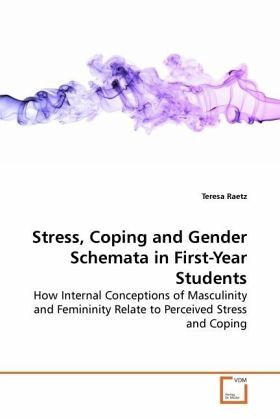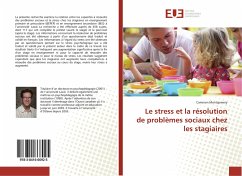
Stress, Coping and Gender Schemata in First-Year Students
How Internal Conceptions of Masculinity and Femininity Relate to Perceived Stress and Coping
Versandkostenfrei!
Versandfertig in 6-10 Tagen
32,99 €
inkl. MwSt.

PAYBACK Punkte
16 °P sammeln!
We all utilize internal conceptions of masculinityand femininity, called gender schemata, whichinfluence much of how we interact with the outerworld. The purpose of this research was to examinehow those gender schemata relate to the levels ofperceived stress and coping strategies used by firstyear students. Additional findings are discussed,including how large scale events, such as theSeptember 11 terrorist attacks, may influence thestress levels of college students in unexpected ways.The findings of this investigation have implicationsfor student affairs practitioners, parents of collegestude...
We all utilize internal conceptions of masculinity
and femininity, called gender schemata, which
influence much of how we interact with the outer
world. The purpose of this research was to examine
how those gender schemata relate to the levels of
perceived stress and coping strategies used by first
year students. Additional findings are discussed,
including how large scale events, such as the
September 11 terrorist attacks, may influence the
stress levels of college students in unexpected ways.
The findings of this investigation have implications
for student affairs practitioners, parents of college
students and anyone interested in understanding
internal conceptions of gender and factors that
influence stress levels and coping strategies in
college students.
and femininity, called gender schemata, which
influence much of how we interact with the outer
world. The purpose of this research was to examine
how those gender schemata relate to the levels of
perceived stress and coping strategies used by first
year students. Additional findings are discussed,
including how large scale events, such as the
September 11 terrorist attacks, may influence the
stress levels of college students in unexpected ways.
The findings of this investigation have implications
for student affairs practitioners, parents of college
students and anyone interested in understanding
internal conceptions of gender and factors that
influence stress levels and coping strategies in
college students.



![Art of Living [ Vol 1] Cover Art of Living [ Vol 1]](https://bilder.buecher.de/produkte/49/49098/49098733n.jpg)








